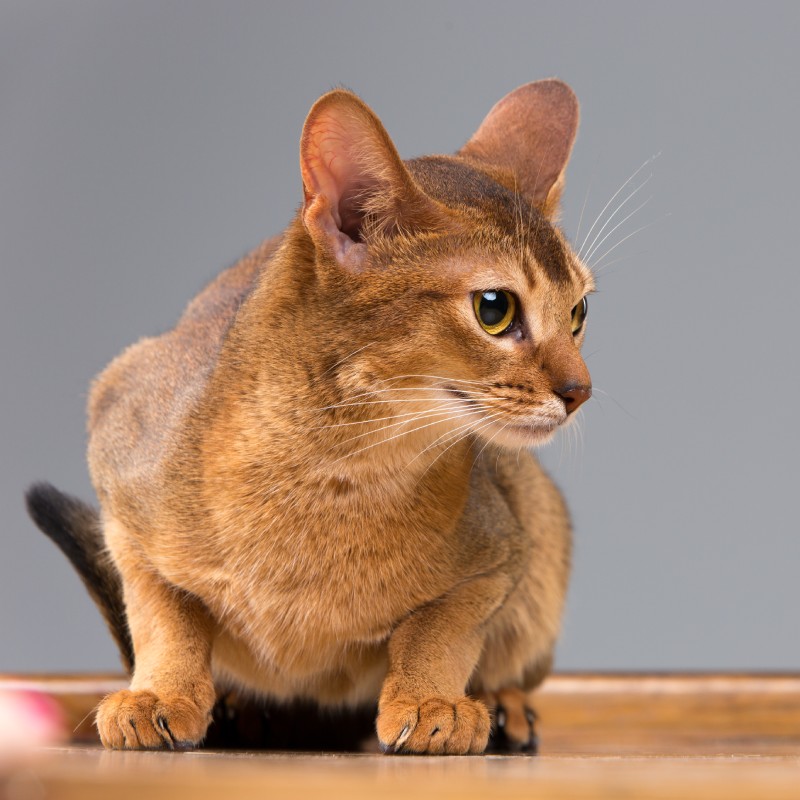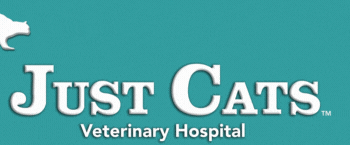Thyro-Cat
Just Cats Veterinary Hospital, working with Thyro-Cat, is authorized to treat Feline Hyperthyroidism using radioactive iodine called I-131.

What is Feline Hyperthyroidism?
The thyroid is a butterfly-shaped gland located in the neck region. Feline Hyperthyroidism occurs when the thyroid gland develops one or more growths that produce an excess of thyroid hormone. 98% of these tumors are benign (adenoma), while 2% percent are cancerous (carcinoma). 70% of cats have both lobes of the thyroid gland affected.
Feline Hyperthyroidism occurs mostly in middle-aged to senior cats. Both sexes and all breeds are equally at risk. Excess thyroid hormone affects many of the cat’s organ systems. If left untreated, hyperthyroidism can lead to organ failure and is fatal.
Diagnosis and Treatment
Diagnosing Feline Hyperthyroidism is usually straightforward and can be confirmed by your veterinarian with a comprehensive physical examination and blood tests. It is important that your veterinarian establishes that the patient has no other health issues.
Management of Feline Hyperthyroidism involves medication or a prescription diet. These treatments may reduce the amount of thyroid hormone in the cat’s system, but they do not cure the disease.
Some veterinarians recommend surgically removing the thyroid growths. However, this is a risky surgery that requires general anesthesia and has a lower success rate than I-131 treatment.
I-131 treatment involves a single injection containing radioactive iodine that will kill the overactive thyroid cells without doing damage to other organs. After the injection, the cat is safely housed in our facility until the level of radiation is safe. This process usually takes three days.
Once your veterinarian determines that I-131 treatment is needed, the case is referred to the team at Thyro-cat. The staff at Thyro-Cat will make the arrangements and schedule the treatment to be done at Just Cats. As an additional level of diligence, the staff at Just Cats performs an ultrasonographic evaluation of the cat’s abdomen and chest to make sure that no other severe disease is present.
If you suspect your cat may suffer from Feline Hyperthyroidism, we encourage you to discuss this with your veterinarian.
For more information, you can visit Thyro-Cat at thyrocat.com or call them at 1-866-467-8228.
I-131 treatment has shown a 97% success rate in curing cats with Hyperthyroidism and requires only one injection.
Symptoms of Feline Hyperthyroidism
- weight loss
- changes in behavior – anxiety or nervousness
- excessive appetite or decreased appetite
- increased water intake
- hyperactivity or lethargy
- excessive shedding, hair loss (alopecia), poor coat condition
- diarrhea or vomiting
- increased urination
- cardiac symptoms – rapid heart rate, arrhythmia
